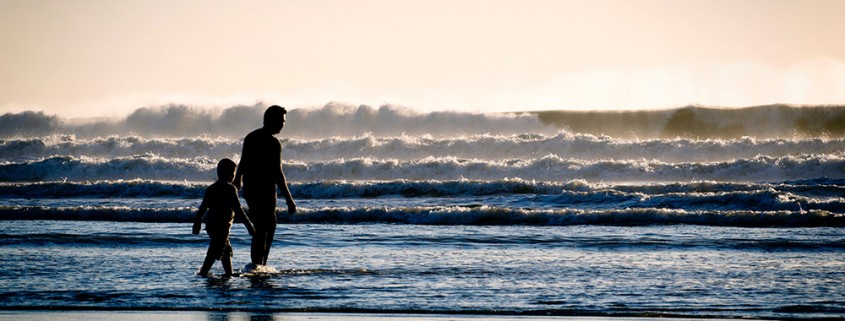The Luxury of Ideal
Before my father died, I was never in trouble with the law. Daddy prevented me from making early mistakes large enough to follow me through life. The shortcomings he saw in himself, he determined to eradicate in me. His bad temper for one. So that any sign of anger, let alone rage, was a near hanging offense, and I do not use that term rhetorically.
My father had been a military lawyer in Germany after World War II. He had prosecuted war criminals, demanding the death penalty in numerous cases.
I knew grown men, employees of my father, who admitted that their guts turned to jelly when Daddy was greatly disappointed. Which he often was in me, for all sorts of reasons, not least because my temper was as bad as his, only I had not had a lifetime of learning to contain it, nor a satisfying career as a prosecutor of heinous crimes, during which Daddy’s temper found justified targets of opportunity, received satisfaction.
By the time I was old enough to qualify as a target—around the age of five I remember being terrified for the first time, after I slugged my sister in the stomach, one time too many—Daddy by then had his rage harnessed, almost like a cartoon character on Saturday morning. Invisible steam blew out of his ears, but his eyes were lethal. I could not look into them without something inside of me dying a little, each of a thousand times I cowered.
He was a leading citizen, influential businessman, “a visionary”, they called him, after he died.
The quickest way to get his attention was the wrong way.
Doing right, being good was expected. He acknowledged excellence; little short of that received more than passing comment.
Then I turned thirteen and started gambling.
Daddy himself taught me to play poker; it was something I should know, like how to play golf, or handle a gun. We did spend time together. For a couple of baseball seasons, me in Little League, he came home early and played catch. When I took golf seriously, he watched me practice now and then and tried to coach me. Otherwise we met like commuters on our respective schedules, at times moving in directions somewhat parallel, almost never congruent. He did not share himself as he was, not with me or anybody. I think he must have been a very lonely man, self-contained, if not self-absorbed, as I imagine most men of his generation turned out, veterans of hard times and war.
Daddy expected me to maintain my emotional self like a trained soldier, always courageous and cheerful in the presence of my commanding officer, him. Any show of discontent was anathema to his mission.
He and I were estranged from the very beginning. When he died suddenly, of bronchial pneumonia, I was nineteen. There was not enough time to reconcile. It had to wait decades, until offshore, in a sailboat named Mysterion, we met again.
In the interim, I had gambled for a living, joined the Army and busted out on a 635-212, Undesirable Discharge, been arrested for smuggling drugs, and nearly went to jail for 5 to 20 years. Mama kept me from going to prison. I came home and got involved in the hotel and real estate business my father had built. Along the way, I had picked up the habit of writing, the addiction to it, which was strangely like the addiction to gambling at cards. I could sit and write for hours, and it would seem as if minutes had passed. Just so, I had loved the poker game, at one time assuming I would never do anything else. Now writing had taken me over.
I got involved in the family business, only to stay in it for a year, until we could sell the hotel. Then I’d be free to live my life apart from Daddy’s expectations. I would have a pile money to buy the time I needed to be a writer. And buy the toys that would entertain me in the off hours.
I oversaw the liquidation of my father’s life’s work. Maybe in my place, he would have done the same.
All in all, in my view, I had more to beg forgiveness for than he did. Hallucinating his presence, call it whatever you will, a trick of the human desire to be forgiven, and to forgive, it happened for me, and I hope for him as a spirit, because I don’t think his life was all that happy. I don’t remember Daddy smiling very often, or myself in his company.
What I wanted for my children was something entirely different. As I am certain my father wished for me when Mama was few months pregnant, and Daddy still had the luxury of imagining ideal outcomes.
Until Betsy had the first sonogram, I believed she was pregnant with a girl, which led my imagination to a future unfettered by responsibilities particular to the father of a son. What would I have to teach a girl? She would be Betsy’s to mentor, mine to have fun with.
I liked the idea of a baby girl. I didn’t trouble myself with thoughts of a boy. We were planning to have one child only. Fatherhood would be a snap. Traveling alone on the boat, I reverted to a solitary frame of mind. Having a pregnant wife at a distance, I was free to enjoy my solitude.
If loneliness intruded, I had the future to look forward to with a daughter. My wife was a friend, a collaborator, a partner in the getting a child. We had a deal, a vision, we were building it together, man and wife without romantic illusions, without the risk of romance burning out.
However, there was this curious sensation, perception, that crept in now and then. I would catch myself thinking of Betsy as human equipment, necessary to the mission, but not irreplaceable. A fleeting numbness would seem to incase my heart, as well as deaden an area of my brain, that under usual circumstances, was readily sentimental, lovey-dovey. Betsy’s beauty, brash and fearless attitude, were attractive components. At times I theorized loving her. At times I felt the soft, magnetic pull of surrender that always came with romance. But overall, I resisted, in favor of what seemed a more solid, more sustainable arrangement. Except for the numbness.



